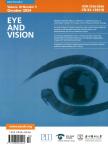
-
个人中心CENTER读者登录LOGIN
- 首页 HOME
- 资源 RESOURCES
- 服务 SERVICES
- 概况 OVERVIEW
- 资讯 NEWS
-
移动客户端
APP

-
图书管家
WECHAT




暂无评论